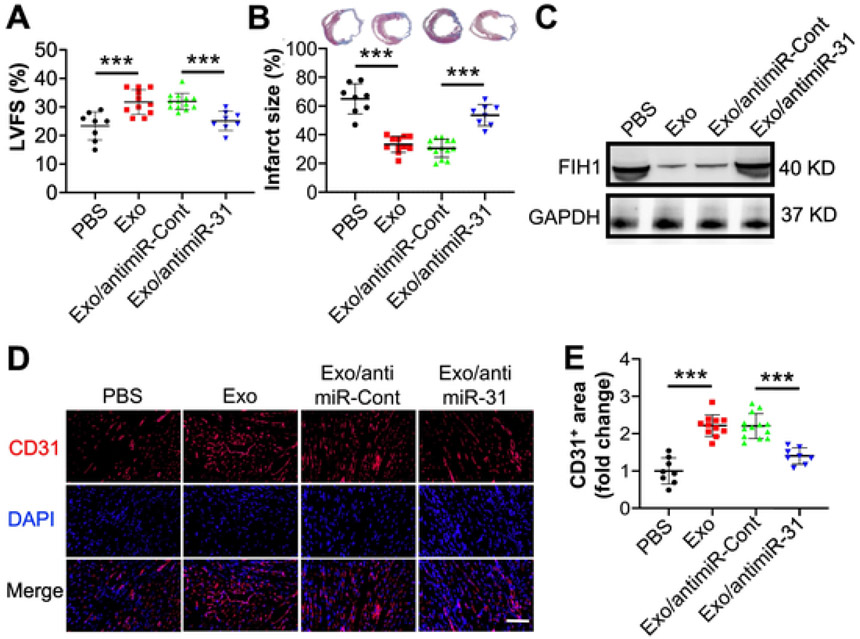Fig. 3.
Exosomes from ASCs promote angiogenesis and function recovery in ischemic heart via delivery of miR-31. Mouse myocardial infarction (MI) was induced by permanently ligating the left anterior descending (LAD) coronary artery. PBS (n = 8 mice), Exo (n = 11 mice) or exosomes from ASCs transduced with anti-miR-Cont (n = 13 mice) or anti-miR-31 (n = 8 mice) were intramyocardial injected, respectively. Four weeks post-surgery, cardiac function was evaluated with echocardiography, and hearts were collected thereafter for morphological examination. A, Left ventricular fractional shortening (LVFS) was determined with echocardiography. B, Infarct size was evaluated with fibrotic area of left ventricle by using Masson's trichrome staining (120 slices from 40 mice). The blue colour represents fibrosis. C, The levels of FIH1 in the infarcted heart were determined by using immunoblotting. D, The sections of the hearts were subjected to immunohistochemistry analysis of CD31, an endothelial cell marker, and counterstained with DAPI (scale bar: 50 μm). E, Quantification of the CD31+ area (120 slices from 40 mice). The CD31+ area in the PBS group was set to 1. Data shown were evaluated with a one-way ANOVA followed by Tukey's multiple comparison test and presented as the mean ± SD. **p < 0.01 and ***p < 0.001.

